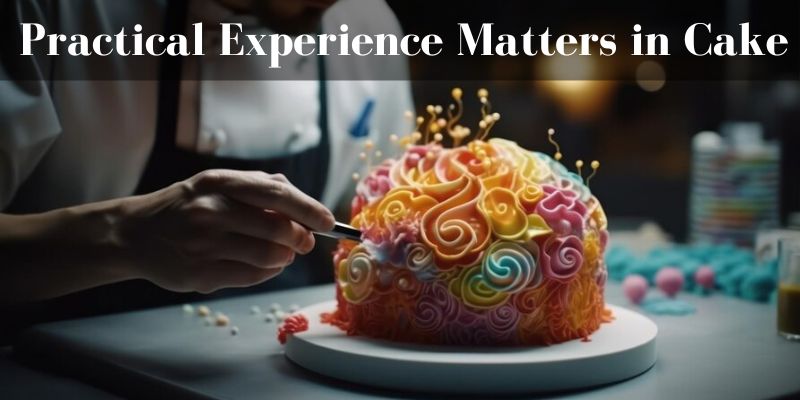Introduction:
Baking is not just a science; it’s an art that engages all the senses. In the realm of cake creation, understanding and mastering flavors is an essential aspect that distinguishes a good baker from an exceptional one. While theoretical knowledge provides a foundation, the significance of practical experience in cake courses focused on flavors cannot be overstated. This article explores the reasons why hands-on experience matters so much in the world of flavor-centric cake courses.
Sensory Exploration:
Textbooks can describe the aroma of vanilla, the richness of chocolate, and the subtle notes of spices, but only real-world experience can fully encapsulate these sensations. In light of this, cake baking classes in Chennai aid with hands-on learning. A hands-on experience that stimulates the senses helps aspiring bakers gain a deeper understanding of the fascinating and complex world of flavors.
Ingredient Interaction:
In a practical setting, students witness the magical dance of ingredients coming together. From the chemical reactions during baking to the transformation of raw materials into a flavorful masterpiece, practical experience provides invaluable insights into the science behind creating a taste sensation.
Adaptability in Flavor Pairing:
While theoretical knowledge provides a framework for flavor pairings, practical experience hones the skill of adaptability. Bakers-in-training learn to balance and adjust flavors on the fly, creating unique combinations that go beyond the limitations of a recipe, and reflecting their personal creativity.
Texture and Taste Integration:
The interplay between texture and taste is a crucial aspect of flavor mastery. Practical sessions emphasize how different textures contribute to the overall sensory experience, ensuring that the end product is not only delicious in taste but also a delight to the palate in terms of texture.
Problem-Solving Skills:
Since baking rarely goes as planned, students learn to be flexible through practical experience. Problem-solving abilities are essential for navigating the unpredictable world of baking, and hands-on learning fosters these abilities through tasks like modifying recipes on the fly or troubleshooting unexpected flavor outcomes. Professional Baking Classes In Chennai enhance your problem-solving abilities and practical knowledge, which will help you become more perfect and open to trying new cake flavors.
Cultural and Culinary Awareness:
Practical experience exposes students to a myriad of flavors from around the world. Flavor-centric cake courses, with their hands-on approach, foster cultural and culinary awareness, encouraging students to draw inspiration from global traditions and incorporate diverse tastes into their creations.
Customer Preferences:
For those aspiring to turn their passion into a profession, understanding customer preferences is crucial. Practical experience provides real-time feedback, allowing students to fine-tune their creations based on the preferences and expectations of their target audience, a skill invaluable in the professional baking world.
Confidence Building:
There’s a unique confidence that comes from successfully creating a cake that not only looks appealing but also tastes exceptional. Practical experience in flavor-centric cake courses instills a sense of confidence in students, empowering them to experiment with bold flavor choices and innovate in their creations.
In the dynamic world of Baking Courses in Chennai focused on flavors, practical experience is the linchpin that bridges theory and culinary expertise. The ability to taste, adjust, and innovate in a hands-on setting is what transforms a passionate baker into a skilled flavor artisan. Aspiring cake enthusiasts should seize every opportunity for practical experience, recognizing its pivotal role in unlocking the full spectrum of flavors that can elevate their creations from ordinary to extraordinary.



